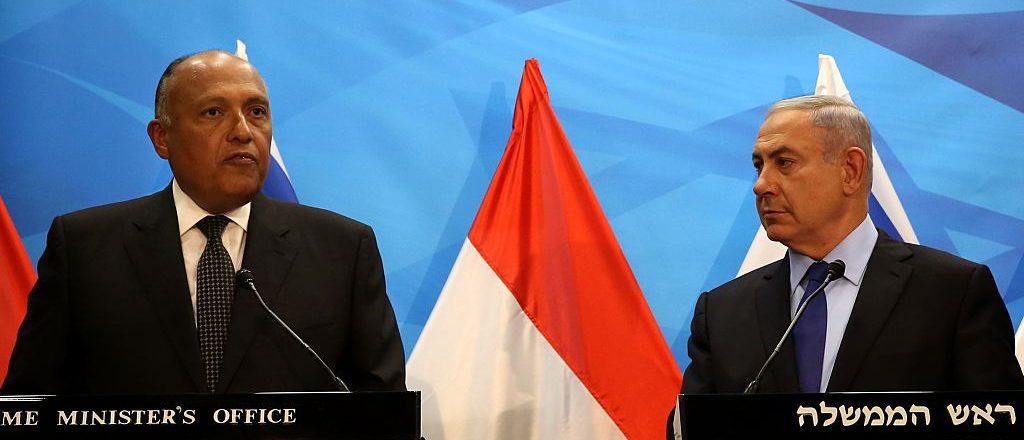A nation must think before it acts.
Over its long decades, the Palestinian cause has been influenced more by what lay under the table than on it, while Arab statecraft played a major role in lengthening the conflict — both in time and geographic scope. It evolved into a political maze, complicated further by the attempts of the Assad regime, the Qadhafi regime, and others to exercise influence over Palestinian decision making, as is well known to those familiar with the history of the Palestinian organizations. A new height in the dangers of the conflict was reached when the Palestinian cause was hijacked by Saddam Hussein: Having invaded Kuwait, he attempted to create linkage between Kuwait and Palestine — a particularly vicious case of manipulating popular emotions about Palestine to serve the political interests of a regime. Most recently, we have reached a period in which Iran has penetrated the Arab arena to an unprecedented degree, by playing numerous cards, the most prominent being the slogan of “Palestinian resistance.”
Meanwhile, “Israel’s right to exist” has become a principle which the international community defends — a matter which everyone needs to clearly understand, whether they accept it or reject it. On the basis of this reality, the late Egyptian president Gamal Abdel Nasser accepted the “Rogers Initiative” in August 1970, which effectively recognized Israel’s right to exist as a state — at that, in the face of staunch Palestinian opposition. For that matter, “official” Arab recognition of Israel arguably goes back as far as the Rhodes armistice of 1949. Folded into the pages of this early period in the conflict’s history is a story that took place in the first half of the 1950s: As relations soured between Abdel Nasser and the Muslim Brotherhood, supporters of Palestinian Mufti Haj Amin al-Husayni came to view Egypt’s role in various initiatives to resettle Palestinian refugees with great suspicion. Palestinian communists, moreover, managed to acquire, by way of an employee of the United Nations High Commissioner for Refugees, the draft of an agreement between the latter and the Egyptian government which called for the repatriation of Palestinians from the Gaza strip to Al-‘Arish. Preparations for this effort had been underway between June 1953 and June 1955. Communist activists printed thousands of copies of the document and distributed it en masse, spurring angry demonstrations across Gaza. Yet there were further attempts to reach “secret agreements” and “tacit understandings,” even after the “tripartite aggression” against Egypt in 1956 — the very heyday of the broadcast “Voice of the Arabs” — which were of course well discharged by the time of the June 1967 war.
Among further matters that should also be placed on the table are two essential realities: first, that “political investment” in the Palestinian cause was for decades a profitable venture for some Arab regimes in their relations with the West, in such a way as to benefit those regimes at the expense of the Palestinians themselves. Second, the conflict with Israel has led to an undeniable outcome well summarized by a leadership figure in the Palestinian Islamic Jihad movement when he said, “We have succeeded in threatening Israel’s security, but we have failed to threaten Israel’s existence.” This observation was, for the man who uttered it, not so much a statement of surrender as a sober acknowledgment of the outcome of his efforts.
In recent decades, Israel has been striving for peace, despite being drawn into war by the resistance forces. Meanwhile, many Arabs have continued to sing the songs of war. This state of affairs has caused Israel’s supporters to perceive and present the country as a villa in the jungle, a nation in search of a partner in peace. From an Arab standpoint, amid negative and deteriorating circumstances in the Arab region, it eventually became necessary to migrate Arab political practice with respect to the conflict from one of “bilateral dialogue” to one of “joint dialogue.” And so developed, for the first time, an “Arab initiative,” adopted by the Arab League, as a basis for a collective Arab position which would serve to mitigate the shortcomings inherent in bilateral negotiation, as well as lay the foundation for a solution that would bridge the gap between the rights of the Palestinians and an internationally recognized point of reference.
Continue reading, “Arab-Israeli Relations in a New Regional Framework”




